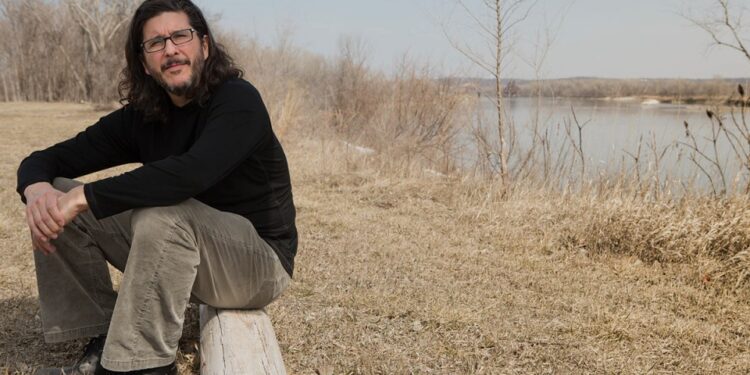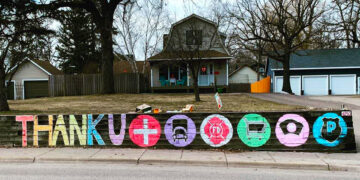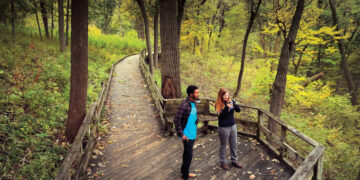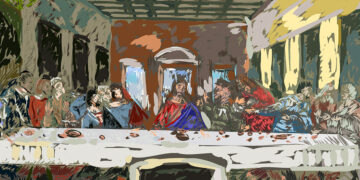Plays and playwrights remain the heart of the May 25-June 1 Great Plains Theatre Conference, which is now in its eighth year, says producing artistic director Kevin Lawler. But since assuming leadership over this Metropolitan Community College-hosted stagecraft confab four years ago, he’s brought more focus to a smaller selection of plays and playwrights and deepened the conference’s community connections.
The conference revolves around readings or performances of new plays by emerging playwrights from around the nation and master theatre artists responding to the work in group and one-one feedback sessions.
“We used to bring somewhere around 70 plays out, and we didn’t have time to read the full play, which was unfair to the playwright,” says Lawler, who writes and directs plays himself. “And 70 plays meant 70 directors and 70 casts, which our local theatre community wasn’t quite able to properly support, so there was always kind of a heightened energy of struggle trying to fulfill all those roles and spots.
“We’ve reduced that number to about 30 plays, so now we’re able to really find great directors, great casts, and we’re able to have a performance of the full script.”
Playwrights find a nurturing environment during the event.
“They’re getting a lot of great attention. It can be a very transformative experience for playwrights who come here. The feedback they give us is that [the event] is moving them forward as theatre artists.”
Omaha playwright Ellen Struve says, “It’s been phenomenal. Going to the Great Plains reaffirmed this was something I was capable of, and finding a playwrighting community was very important.” She and others who participate there formed the Omaha Playwrights Group, and two of her own plays read at the conference have been produced, including Recommended Reading for Girls at the Omaha Community Playhouse this spring. As interim artistic director of the Shelterbelt Theatre, Struve regularly draws on conference scripts for productions.r
“It can be a very transformative experience for playwrights who come here. The feedback they give us is that [the event] is moving them forward as theatre artists.” – Kevin Lawler, artistic director
r“Ellen’s a shining example of somebody who was really able to find their feet at the Great Plains and really go from there and grow and take off,” says Lawler.
He adds that other local theatres also source plays and contacts at the conference.
“There’s an aspect of community building that occurs here,” Lawler says. “We try to foster that. There are many folks who leave here who stay in very close contact with others they meet here, supporting each other, sharing work, working on each other’s projects, helping get their work made. A national network is starting now.
“There’s a great exchange that happens.”
Featured plays are selected from 500-plus submissions. Guest artists who serve as responders also teach workshops. These artists are nationally known playwrights and educators who lead “various new movements in theater expanding what theatre might be, widening the horizons a bit,” says Lawler.
Works by featured guests are performed, including a water-rights drama by 2013 honored playwright Constance Congdon. The drama is slated to be presented on the edge of the Missouri River.
The conference’s PlayFest is a free festival that happens citywide. This year, “neighborhood tapestries” in North and South Omaha will celebrate the stories, music, dance, art, and food of those communities.
“We’re trying to be more rooted in the community,” Lawler says. “It’s kind of a lifelong quest I have to keep looking at the art form and saying, ‘What are we doing that’s not working very well?’ That’s part of the reason the whole PlayFest is free. Theatre is just priced out [of some people’s budgets]. That doesn’t work.”r
“Going to the Great Plains reaffirmed this was something I was capable of, and finding a playwrighting community was very important.” – Ellen Struve, playwright
rStageWrite is a conference initiative to nurture women playwrights and their work in response to the disproportionally small percentage of plays by women that get produced in America. A writing retreat for women playwrights is offered and funding is being sought for year-round women’s programs.
Another way the Great Plains supports playwrights is by publishing an anthology of select scripts to get those works more widely read and hopefully produced.
Lawler says Omaha’s embrace of the conference has allowed it to grow. Actors, directors, and technicians from the theatrecommunity help put in on. Donors like Todd and Betiana Simon and Paul and Annette Smith help bring in guest artists.
For the conference schedule, visit mccneb.edu/gptc.
Read more of Leo Adam Biga’s work at leoadambiga.wordpress.com.













